Manoop Talasila
FGLP: A Federated Fine-Grained Location Prediction System for Mobile Users
Jun 13, 2021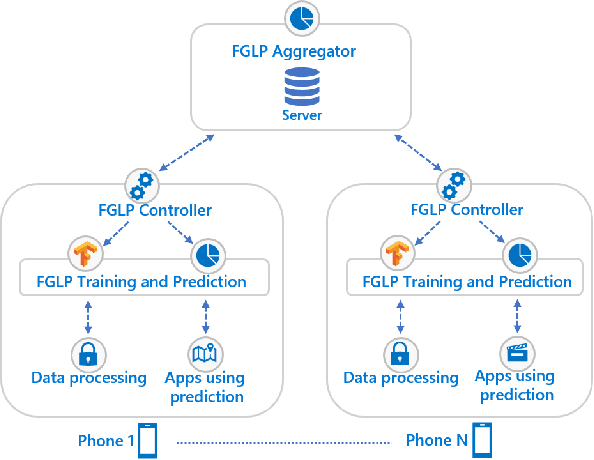
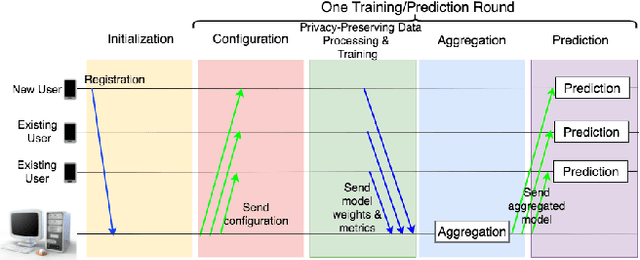
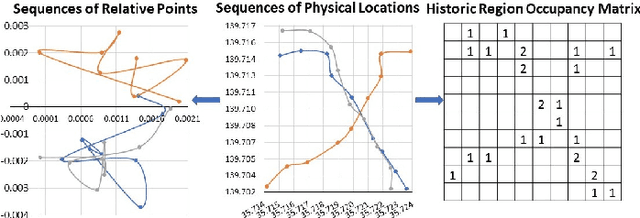
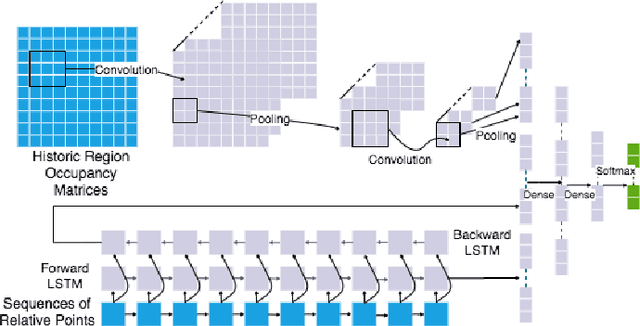
Abstract:Fine-grained location prediction on smart phones can be used to improve app/system performance. Application scenarios include video quality adaptation as a function of the 5G network quality at predicted user locations, and augmented reality apps that speed up content rendering based on predicted user locations. Such use cases require prediction error in the same range as the GPS error, and no existing works on location prediction can achieve this level of accuracy. We present a system for fine-grained location prediction (FGLP) of mobile users, based on GPS traces collected on the phones. FGLP has two components: a federated learning framework and a prediction model. The framework runs on the phones of the users and also on a server that coordinates learning from all users in the system. FGLP represents the user location data as relative points in an abstract 2D space, which enables learning across different physical spaces. The model merges Bidirectional Long Short-Term Memory (BiLSTM) and Convolutional Neural Networks (CNN), where BiLSTM learns the speed and direction of the mobile users, and CNN learns information such as user movement preferences. FGLP uses federated learning to protect user privacy and reduce bandwidth consumption. Our experimental results, using a dataset with over 600,000 users, demonstrate that FGLP outperforms baseline models in terms of prediction accuracy. We also demonstrate that FGLP works well in conjunction with transfer learning, which enables model reusability. Finally, benchmark results on several types of Android phones demonstrate FGLP's feasibility in real life.
Packaging and Sharing Machine Learning Models via the Acumos AI Open Platform
Oct 16, 2018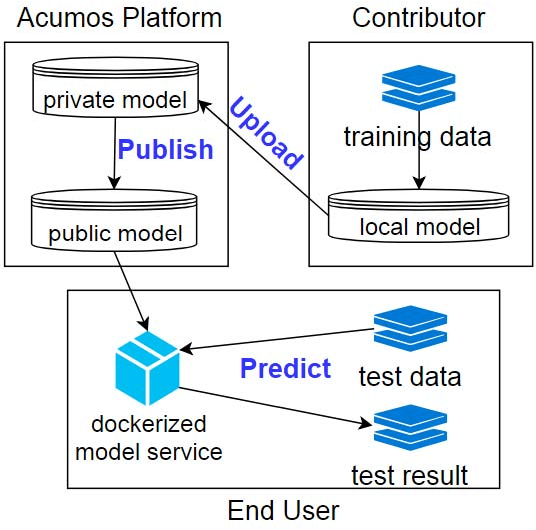
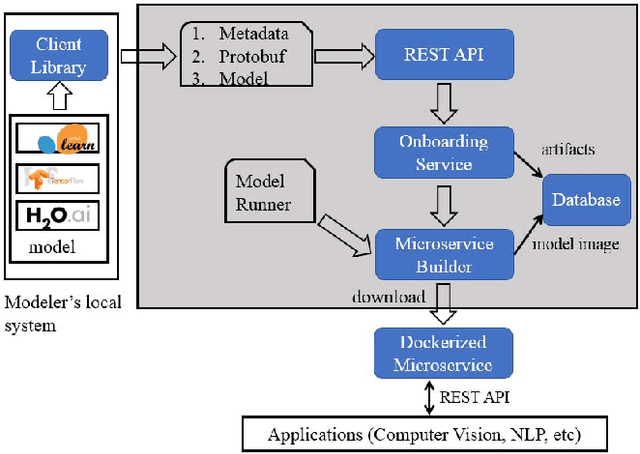
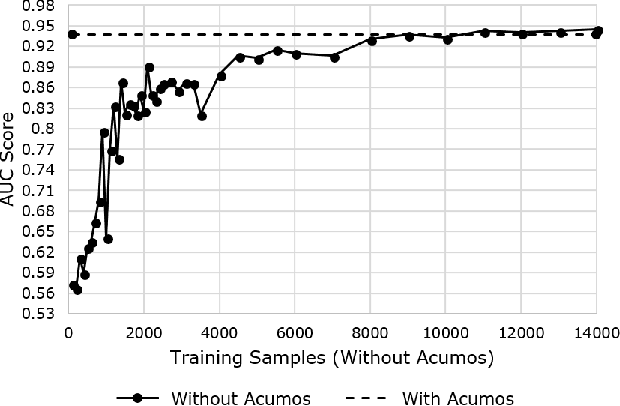
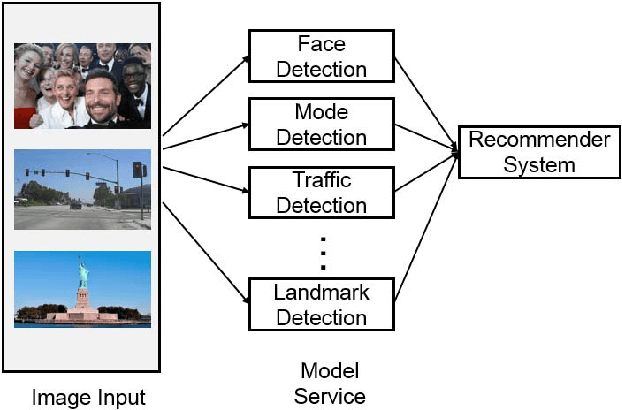
Abstract:Applying Machine Learning (ML) to business applications for automation usually faces difficulties when integrating diverse ML dependencies and services, mainly because of the lack of a common ML framework. In most cases, the ML models are developed for applications which are targeted for specific business domain use cases, leading to duplicated effort, and making reuse impossible. This paper presents Acumos, an open platform capable of packaging ML models into portable containerized microservices which can be easily shared via the platform's catalog, and can be integrated into various business applications. We present a case study of packaging sentiment analysis and classification ML models via the Acumos platform, permitting easy sharing with others. We demonstrate that the Acumos platform reduces the technical burden on application developers when applying machine learning models to their business applications. Furthermore, the platform allows the reuse of readily available ML microservices in various business domains.
 Add to Chrome
Add to Chrome Add to Firefox
Add to Firefox Add to Edge
Add to Edge